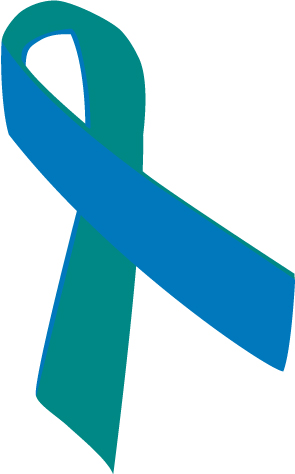 Mental Health Awareness Ribbon
Mental Health Awareness Ribbon(Photo credit: Wikipedia)
Me neither.
If we are (as far as we know) mentally healthy, we tend to take that for granted. Perhaps we smugly assume it is due to "good genes" or some superior behavior on our part. (I've never taken drugs/abused alcohol; I eat a healthy diet and exercise regularly.)
Yes, all those things are important for building or maintaining a healthy body and mind. But even if we do all the right things, even if (as far as we know) nobody in our families has ever been mentally ill, someday we still might become mentally ill. Or face it in a loved one who never "did anything wrong." (Post-partum depression or Alzheimer's, anyone?)
In the United States and Canada about one in four adults suffer from a diagnosable mental disorder in a given year. (Mind you, just because someone could be diagnosed, doesn't mean s/he actually is diagnosed.) Many, many people struggle alone, trying to combat their disorder through willpower and denial, because they don't want the stigma of seeking help for a mental disorder. Or because they do not realize they are actually ill, not simply sad or moody.
We are beginning to learn that many cases of alcohol and/or drug abuse are actually people self-medicating for untreated mental illness or to relieve the pain of traumatic events, like childhood sexual abuse. (Clue: it only works for a little while.)
Janet's fun clip here has absolutely nothing to do with mental illness,
but 'Til It's Gone inspired my title and thoughts for this post.
Rather than be judgmental and harsh with ourselves and others, we need to offer real support and encouragement. That means money - for treatment, for research, for medication, and living facilities for the most severely affected. We need insurance policies (or single payer plans) that don't impose a lifetime cap of "50 visits to a therapist, and you're on your own."
We don't expect people to "will away" their nearsightedness or broken arms (except for Christian Scientists). We don't tell people to just not let their kidney stones hurt them so much.
Why do we expect people with an ailing brain - whether it's OCPD, bi-polar disorder, or depression, to simply make up their minds to be well?
From Adventures in Depression at Hyperbole and a Half:
When I couldn't will myself to not be sad, I became frustrated and angry. In a final, desperate attempt to regain power over myself, I turned to shame as a sort of motivational tool.
But, since I was depressed, this tactic was less inspirational and more just a way to oppress myself with hatred. <snip>
The self-loathing and shame had ceased to be even slightly productive, but it was too late to go back at that point, so I just kept going. I followed myself around like a bully, narrating my thoughts and actions with a constant stream of abuse. <snip>
I spent months shut in my house, surfing the internet on top of a pile of my own dirty laundry which I set on the couch for "just a second" because I experienced a sudden moment of apathy on my way to the washer and couldn't continue. And then, two weeks later, I still hadn't completed that journey. But who cares - it wasn't like I had been showering regularly and sitting on a pile of clothes isn't necessarily uncomfortable. But even if it was, I couldn't feel anything through the self hatred anyway, so it didn't matter. JUST LIKE EVERYTHING ELSE.
Please go to Hyperbole and a Half and read the entire post. (Partial reposting with attribution, as I have done here, is permissible according to the author on her FAQ's.) It's a brilliant example of what Depression really is - not just feeling a little sad, go outside and take a walk or blow some bubbles and you'll feel better. (Btw, it's not helpful to tell someone who has Depression with a capital D that you know how they feel, because your cat died and you were depressed for weeks.)
Sometimes episodes: of depression, of mania, of anxiety, of paranoia - end on their own. Other times they do not.
There is nothing wrong with seeking help when you or a family member is mentally ill - or even if you suspect you, he or she might be. If you had an infected tooth, wouldn't you seek treatment? (Then again, for some people, the answer is hells no.)
When our cars are making a weird sound, we generally hurry in to the mechanic. We can't afford to let our cars break down. What would society be like if we did the same thing for physical and mental health - got regular "tune-ups," and went for help whenever we suspected "something's not quite right," without worrying what the neighbors would think? (Or without worrying as to whether the bills might send us into bankruptcy?)
Right now, we don't do much as a society for mental illness until someone pulls out a gun and starts shooting people. Or dies in a fire in their hoarded home, or commits suicide. We can't afford to allocate the monetary resources, people say. But how much does ignoring the problems until they become tragedy, cost us?
My A-Z theme is Issues related to Mental Health or Mental Illness.
Have you or someone you have known self-treated
for stress, mental illness or emotional trauma?
What was the factor holding you/them back?
Lack of money/insurance coverage?
Lack of money/insurance coverage?
Afraid of the stigma that would attach to the treated person?





